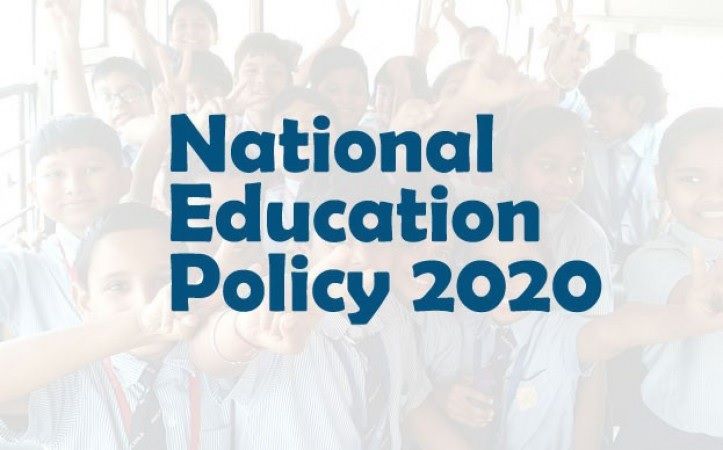NEP 2020: Great Jubilation across Tamil Nadu (Part – 1)

There are several reference leads via hyperlinks provided within. Readers are requested to use them to get the complete picture of the contents.
The Central Cabinet has approved the New Education Policy (NEP 2020) which was proposed by the panel headed by Dr K. Kasturirangan. This is the first time that an education policy has come out with such favourable and sweeping changes to the education system which was established by the British in 1835 by displacing the pre-existing traditional education system about which many people have many misconceptions created by vested political powers. Evidences for the existence of widespread elementary education that existed in every village that catered to all children and the many ways to attain proficiency in higher education have been documented by the colonial invaders. Post-independence, there have been only some pruning of the tree that had already been uprooted by the Macaulayan system.
By allocating 6% of GDP for education, the Government has made it amply clear that they are very serious about bringing in a shift in the education in a multi-pronged manner. Perhaps for the first time, the Government also took inputs from the people in a very democratic manner. It has been what most people, be they educationists, students, parents or the society at large, have been waiting to happen for a long time. While the new system does not (and practically cannot) resemble the traditional systems at present, many attempts have been made to turn the society to move towards that direction over time.
At a personal level, many friends, teachers and others from Tamil Nadu have expressed their pleasure over NEP 2020. There are attempts by some political elements to disrupt the flow of information by spinning in lies and twisting the facts but these can easily be answered by us. As proud Tamizhars and as great contributors to the ancient culture of Bharata, we all must be happy that NEP attempst to protect, spread and popularise our languages and traditions all over the country which was never attempted before.
There are several noteworthy changes, and I am listing out these here:
Change in the schooling scheme from 10+2 to 5+3+3+4.
This means that the very young children are within the education ambit (thereby bringing more training in child rearing to parents and bringing more children to get better nutrition and exposure to learning). Grouping children into 4 different learning brackets would help to direct the focus within each bracket based on the developmental stage of the children. During the Primary years, importance would be given to literacy and numeracy. This is nothing new to Tamil culture as it has been told to us long ago by Thiruvalluvar: எண்என்ப ஏனை எழுத்தென்ப இவ்விரண்டும் கண்என்ப வாழும் உயிர்க்கு. (Numerals and Letters are the two eyes of all beings) - Thirukkural (392)
1. The 4-year High School study would give the students greater edge in their own subjects and prepare them for college better.
2. Greater stress on vocational training. About one-third of the population of our country is in the school going age (think of the entire population of the USA). Unless we make productive people out of these youngsters, they would turn out to be liabilities for our nation. Under the new system, every child MUST opt for a vocation and begin training from Grade-6. By the end of schooling, every child is adept in at least 1 skill.
3. Emphasis on regional language as the medium of teaching in primary level (and, if possible, for higher levels also).
As per all knowledge and research, a child is at its best learning ability when it interacts in its own native tongue. There is criticism on this front from some people who feel that English learning is vital for children from an early stage to enable it to gain proficiency. This is a misplaced argument as it is known that since English is not its native language, even if the child starts early, the child takes time to gain proficiency in it. Moreover, it loses the advantage that it would have if the instruction is in its own language. The second (and greater) misplacement is the importance given to English language as being superior to one’s native language.
4. A 3-language policy in which the child learns at least 2 Bharatiya languages. This is quite welcome as, in the past, we have seen children who were able to go through schooling with more foreign languages (and therefore, lesser exposure to Bharatiya languages and culture).
There was a controversy kicked up by some people who claim that NEP aims at placing Hindi above other languages . I ask them to respond to these true natives of Tamilnadu. Is there at least 1 government school that teaches Toda, Baduga or Kurumba at school for these children? Will any Minister talk to these people in their language(s) when they meet them?
With regard to Sanskrit: If there is one language that can stand equal to the antiquity and greatness of Tamil, then it is only Sanskrit. Saiva Siddhar Tirumūlar has eulogised Āriyam (Sanskrit) in Tirumantiram. He has also spoken about the importance of scholars learning many languages. This is nothing new to our culture – we were never a people who knew only Tamil and nothing else.
Moreover, there is no compulsion to learn Sanskrit at all. It is only advised to be OPTIONALLY offered by schools at all levels. A child may choose to study Tamil and 2 other languages out of which 1 must be a Bhāratīya language. The 3rdlanguage may be a Bhāratīya language or a foreign language.
There is an accusation that the aim is to wipe out English. The aim, as clearly stipulated, is to promote Bhāratīya languages. It is only the one wearing the binary lens who would interpret this as an attempt to wipe out English. The policy itself is available in English language, so what is the problem?
(Will continue in the next part)

